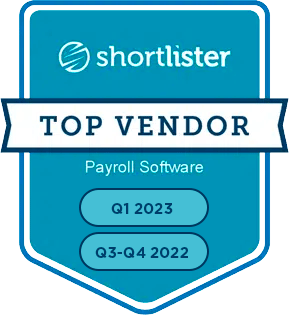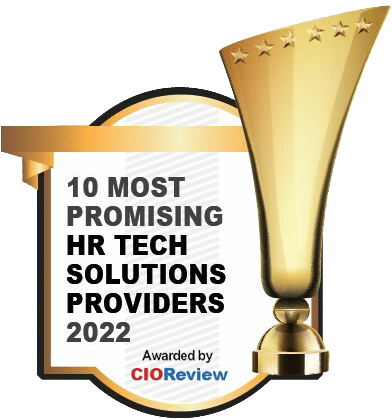Human Resources (HR) compliance is a crucial aspect of business because labor laws and regulations are strict and intricate. Understanding and adhering to HR compliance is not only a legal obligation but also a strategic approach for businesses. Regardless of your business’s size, it can foster a positive work environment and prevent expensive legal complications.
Businesses should familiarize themselves with federal and state labor laws that apply to their industry. This includes laws such as:
- Fair Labor Standards Act (FLSA)
- Title VII of the Civil Rights Act of 1964
- Americans with Disabilities Act (ADA)
- Family and Medical Leave Act (FMLA)
There are other regulatory requirements like Occupational Safety and Health Administration (OSHA) guidelines to keep in mind.
What is HR compliance?
What does HR compliance mean for employers? HR compliance involves ensuring business policies and practices align with the laws and regulations about employment.
This encompasses various areas, including:
- Hiring practices
- Workplace safety
- Employee benefits and compensation
- Equal employment opportunities
- Termination processes
Staying updated with the latest federal, state, and local laws is crucial for maintaining compliance.
Why is HR compliance important?
HR professionals should prioritize HR law compliance as a proactive measure to protect their employees’ rights. It also helps to maintain a positive image within the industry and among stakeholders.
Non-compliance with HR regulations can lead to severe consequences, including legal penalties, lawsuits, damaged reputation, loss of talent, or business opportunities. Therefore, organizations need to prioritize HR legal compliance to create a positive work environment while mitigating risks associated with non-compliance.

HR compliance checklist for businesses
Navigating HR compliance can be challenging for an HR team. However, it is essential for the legal and ethical operation of any business. By following this HR compliance checklist, you can take significant steps towards protecting your business and employees.
Employee records and documentation
- HR Records and Documentation: Maintain records of hiring, evaluations, discipline, and terminations.
- Form I-9 Compliance: Ensure compliance with employment eligibility verification.
Employment law compliance
- Equal Employment Opportunity (EEO): Prevent discrimination by adhering to EEO standards.
- Anti-Discrimination and Anti-Harassment Policies: Establish and enforce policies that aim to prevent workplace discrimination and harassment.
- Family and Medical Leave Act (FMLA): Revise policies to comply with FMLA regulations regarding employee leave.
- Fair Labor Standards Act (FLSA): Adhere to wage and hour laws, which include minimum wage and overtime pay regulations.
- Employee Classification: Accurately classify exempt, non-exempt employees and independent contractors.
Compensation and benefits
- Payroll Compliance: Develop a payroll schedule and payroll process for employees.
- Workers’ Compensation: Comply with applicable workers’ compensation requirements.
- Benefits Administration: Ensure that employee benefits are managed in compliance with legal standards.
- Tax Compliance: Outline and implement proper tax withholding and reporting procedures.
Employee handbooks, policies and training
- Update Employee Handbooks: Regularly update employee handbooks to reflect current laws and policies. Educate employees about their rights and duties.
- Easy-to-Read and Accessible Handbooks: Make sure employment policies are effectively communicated and understood by all employees. Handbooks can be in digital formats for easy access.
- Anti-Discrimination and Harassment Training: Regularly host seminars and workshops to train employees on these issues.
- Safety Training: Provide training on workplace safety and health standards according to OSHA regulations.
Diversity and inclusion
- Diversity and Inclusion Policies: Create and enforce policies promoting workplace diversity and inclusion.
- Equal Pay Policies: Ensure pay equity among all employees.
- Accommodation for Disabilities: Employers should provide reasonable accommodations for employees with disabilities.
Hiring and termination policies
- Fair Onboarding Practices: Engage in non-discriminatory and equitable hiring practices, including background checks.
- Termination Procedures: Have set procedures that follow legal guidelines for employee termination and offboarding.
- Final Paychecks and Accrued Leave: Ensure compliance when issuing final paychecks and managing accrued leave.
- Exit Interviews: Conduct exit interviews to gather feedback and manage transitions.
Data privacy and security
- Compliance with Data Protection Laws: Follow laws like HIPAA for handling and securing employee data.
- Data Handling and Storage Policies: Create and update policies for the proper handling and storage of data.
- Cybersecurity Measures: Ensure adequate protection against cyber attacks and preventative employee behavior for human firewalls.
- Data Breach Response Plan: Have a plan for responding to data breaches to protect assets.
A practical solution to HR compliance
HR compliance is an ongoing process that requires diligence and being adaptable to changing laws. AllianceHCM is software designed with you in mind. It takes care of manual tasks to help reduce the administrative burden HR professionals and small businesses face.





